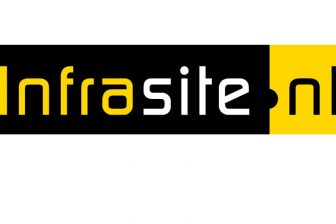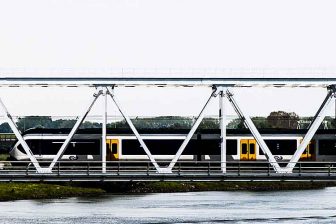UITP and ETF present statement on urban mobility
The International Association of Public Transport (UITP) and the European Transport Workers’ Federation (ETF) present their joint statement on urban mobility
as the EU Commission prepares the Green Paper on Urban Mobility
Speakers: Sabine Trier, ETF Deputy Secretary General
Guido del Mese, Chairman of the European Union Committee of UITP
Brussels, Belgium – The UITP-European Union Committee and the European Transport Workers’ Federation presented 2007-01-23 their common position on the forthcoming Green Paper on Urban Mobility. The two organisations welcome this initiative of the European Commission and encourage the Commission to take this opportunity to promote modal shift in favour of more sustainable means of transport as clean, efficient, affordable and safe urban mobility is essential to promote economic growth and vitality of European cities and to preserve the quality of life of its inhabitants.
Without ignoring the principle of subsidiarity, the two organisations believe that through relevant and coordinated initiatives at the European level, sustainable urban mobility can be promoted. In particular, ETF and UITP urge the Commission to address the following issues:
- 1. The Green paper should explore the role of the European institutions in leading and encouraging the development of policies to promote the use of public transport as a rational tool for improved urban transport sustainability. These policies should have measurable targets. It should be evaluated which targets should be set at European level and what can be done by the European Union to encourage targets to be set by the Member States themselves. The measurability and comparability of targets is essential to the evaluation of policies and achievements.
- 2. The Green Paper should take into account the development of comprehensive and accurate statistics on urban transport.
- 3. The Green Paper should consider the possibility of mandatory sustainable urban transport plans in urban areas with populations of 100,000 and more.
- 4. It would be helpful to establish all forms and sources of funding for public transport infrastructure and operations at national, regional and local levels and to explore the possibility of additional European Union funds for urban transport projects that favour sustainable systems. Financial insecurity weakens the situation of public transport operators. The competition from the private car use, the erosion of public funding, the rising energy costs and the economical loss due to increased traffic congestion could reduce the level of service and employment.
- 5. Furthermore, the Green Paper should point out the issue of the quality of public transport service as a key aspect to attract and retain users. The Green Paper would be an excellent vehicle for identifying best practices. This would include emphasis on the responsibility of all levels of government to ensure quality in public transport and the provision of appropriate financing.
- 6. Last but not least, the declaration deals with the issue of employment. Employees are key to the success of public transport operations. The quality of the working environment is an essential element for assuring quality services to the customers. Appropriate investment should be guaranteed as well as a close cooperation among employers, employees and trade unions to pursue common objectives. The Green Paper should address these issues, particularly with regard to identifying best practices, and emphasise the importance of social dialogue.
It is only if these requirements are met that that public transport will be able to fully play its role in supporting the Lisbon Agenda and the Sustainable Development Strategy.
The full joint declaration can be viewed at www.uitp.com
The International Association of Public Transport (UITP) is the international organisation for public transport authorities and operators, policy decision-makers, scientific institutes and the public transport supply and service industry. It is a platform for worldwide co-operation and the sharing of know-how between its 2,700 members from some 90 countries.
The UITP EU Committee was established in 1965. The objective of the UITP EU Committee and its secretariat, the EuroTeam, is to represent the interests of public transport undertakings in relation to EU institutions. They monitor legislation and provide members with information regarding EU policy developments, prepare EU Committee positions papers, represent the common interests of members in relation to the European institutions and assist and advise members concerning all aspects of European policies related to the public transport sector.
The European Transport Workers’ Federation (ETF) is a pan-European trade union organisation established in 1999. The organization embraces transport trade unions from the European Union, the European Economic Area and Central and Eastern European countries representing more than 2.5 million workers from 40 European countries. ETF main activity is to represent and defend the interests of transport workers throughout Europe.
U las zojuist één van de gratis premium artikelen
Onbeperkt lezen? Profiteer nu van de introductieaanbieding voor € 10,- per maand.
Bent u al abonnee?



